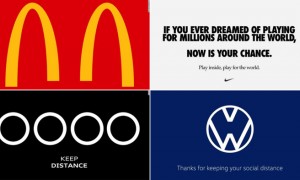It was the late 70s and we thought him almost a god, my school friends Helen and Anne and I. An actor-director undergraduate, impossibly tall, dark and drop dead gorgeous, he co-hosted a party every summer for which all the guests had to dress in white. Everything he did was cool and desirable. Until, in the 80s, a killer disease from America swept through the beautiful people like a scythe, and left him a wasted skeleton in a hospital bed. Anne managed to visit him and I meant to, really I did. But I couldn't quite believe there wasn't plenty of time. You see he seemed incapable, but incapable, of doing anything disagreeable.We need to be "more Christian to one another" over AIDS, Elton John said yesterday. An interesting phrase, given Mr John's introduction to this once devastating scourge.
他那时是演员兼导演专业的学生,皮肤黝黑、英俊高大。每年夏天他都会联合举办一次社交聚会,到场的来宾都必须身着白色衣服。他做的每一件事都十分出色、令人满意。直到八十年代,一种致命的疾病如镰刀般击倒了这位完美的人,他躺在医院的病床上,被病痛折磨成了一个骨瘦如柴的废人。安妮去看望了他,尽管我也十分想去,但我无法接受他将不久于人世。你也许觉得他看上去什么事也做不了,但他不会去做令人生厌的事。昨日,艾尔顿·约翰说在艾滋病的问题上,我们必须“像基督徒一样更加仁慈对待彼此”。考虑到约翰初次接触这一度被视为是毁灭性的灾难时的情形,他这样的表述十分有意思。

In 1985 he first read about and then met a brave young haemophiliac, Ryan White. When a journalist revealed that Ryan was dying of AIDS, not only was he banned from school and a judicial restraining order put on him to the cheers of neighbours, but his own church required him to sit in a separate pew, and on Easter Day no one in the congregation would shake his hand as a sign of peace. If this is the behaviour of the church, why should we want to be more "Christian" towards one another? We hardly have an impeccable record, do we? once when we had reached a very low ebb as a family, I asked my husband, in despair, "Why should we go on believing, when God doesn't answer prayer and Christians can behave worse than anybody?" All he said in reply was this. "Look at the character of Jesus. Who else do you think He could have been?" Not "Christian" theology. Far less the behaviour of "Christian" sinners like ourselves. But the character of Christ.
1985年,约翰读到关于血友病患者瑞安·怀特的报道,并和他见面。当记者透露瑞安死于艾滋病时,约翰不仅被学校拒之门外,还收到了法律禁令,他的邻居都为此欣喜不已,就连他所在的教堂都要求他坐在单独的长椅上。到了复活节,会众中没有一个人跟他握手言和。如果这就是教堂的所作所为,为何我们要更“像基督徒”那样对待彼此呢?人无完人,不是吗?家庭遇到困境时,我曾绝望地问丈夫“既然上帝都不去回应人们的祷告,基督徒可以比任何人都要无情,为什么还要继续我们的信仰呢?”他的回答是:“看看耶稣的品格,你觉得除了他还有谁可以是上帝?”使他成为上帝的不是基督教所信仰的理论,更不是我们这有罪过的基督教徒的言行,而是基督的品格。
My godmother gave me a Bible, in red tooled leather, which I had throughout my childhood and have still. At that moment I thought of its garish, dated children's pictures, a shepherd with long hair and a lamb across His shoulders. Who else could He have been? It's true, He could be angry. He was capable of condemning. He even talked of Judgement. But it's not for this that we remember Him. We remember a Man who loved a sex worker for indecently wiping His feet with her loose hair, who publicly befriended a fraudster worse than any recently discredited banker, who cured those whose illnesses made them even more untouchable than Ryan, ostracised by his society. Elton John's book is provocatively entitled, Love is the Cure. Not medicine, or science, or technology, it is love for which this God is known above all, extending an invitation into His kingdom to a terrorist hanging by His side. As Elton John said, Jesus, like Ryan who followed Him, "loved and forgave unconditionally and died for the sake of others." A death even more disagreeable than my friend's all those years ago.
我的教母曾给了我一本红色书皮的圣经,我从儿时一直保存到现在。我想到书中艳丽、陈旧的儿童图画,上面画着长发的牧羊人,肩上坐着一只羊羔。除了他谁还能是上帝?的确,他可以发怒。他能做出审判。他甚至提到过裁决。但我们不是因此才纪念他。我们纪念的是一个男人:当性工作者不雅地用蓬乱的头发擦试他双脚时,他给予她爱;遇到名声比任何名誉扫地的银行家都要恶劣的诈骗犯时,他公然和他成为朋友;有人因疾病受到比瑞安更甚的排斥,他为他们治疗。艾尔顿·约翰为他的书起了一个有争议性的标题,《爱是良药》。并非药物,并非科学技术,而是爱让上帝为世人所知晓,让他邀请被绞死在他身侧的恐怖分子来到他的国度。正如艾尔顿·约翰所说,瑞安所追随的耶稣“无条件的热爱并宽恕着人们,为他人献身”,这样的死亡比数年前朋友去世更令人难受。







